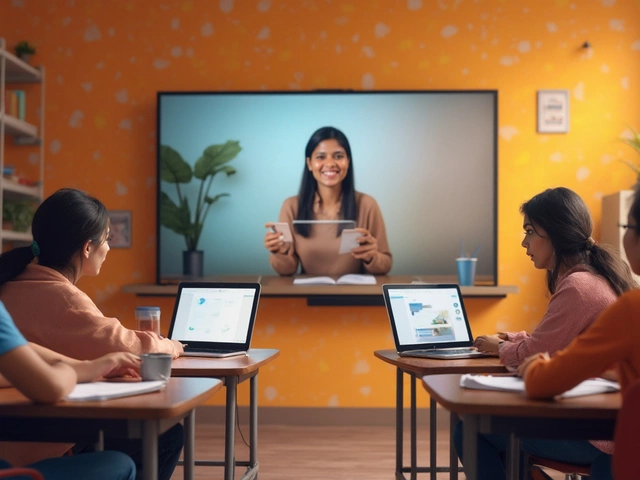
You’ve probably heard coders and programmers tossed around like they’re the same thing. But grab a coffee and sit tight—turns out, they’re not just two words for people who write weird lines on black screens. There’s a gap between the two, and it’s way bigger than people think. If you’re figuring out which path might pay your next rent check or scratching your head over what hiring managers want, you’re already asking the right question.
Understanding Coding: The Building Blocks
Coding is where most people start, and for good reason. Imagine you just got your hands on a giant Lego set—the kind with thousands of pieces but just a simple idea of what you want to make. Coding is putting those pieces together, guided by step-by-step instructions. You don’t need to invent the Lego set; you only need to put it together so it works. Coding, at its core, is the art of translating logic and instructions into a language that machines understand. Languages like Python, JavaScript, and C++ are probably what come to mind, but even writing HTML for a website counts as coding. Coders tell computers exactly what to do, line by line, using syntax the computer won’t misunderstand. If the code doesn’t work, it usually means there’s a typo or a missed punctuation mark—something the computer can’t interpret. Fix that, and you’re back in business.
Most intro courses start with coding because it builds a strong foundation. You get to flex your logic muscles, learn how computers really think, and understand how basic pieces fit together. While it’s easy to fall into the trap of memorizing code snippets, great coders know when to copy-paste and when to stop and figure out what each line does. Debugging is a big part of this. In fact, a 2023 Stack Overflow survey showed that over 60% of new coders spend more time debugging than actually writing new code. So if you thought coders just hammer out perfect lines for hours on end, sorry—that’s a myth.
Coding isn’t about reinventing the wheel. It’s more like following a recipe. Need to display a button on a website? There’s code for that. Want to reverse a list in Python? Type a command and let the language handle it. Coders are like translators—turning what people want to happen into crisp, clear machine instructions. There’s creativity, sure, but it’s focused on solving small, clear tasks, not inventing whole new systems. Whether you’re building an online form or a calculator app, coding is about delivering finished, working parts that others can plug in or expand on later. The accessibility of coding—plus mountains of free tutorials—makes it a fan-favorite for newcomers. It scratches that early itch to “build something” without a degree in computer science. If you want to get your hands dirty fast, coding is your ticket in.
Programming: Beyond the Code
If coding is putting together Lego models, programming is designing the entire city they live in. Programmers don’t just write lines; they map out the big picture, figuring out how pieces work together, what should happen when things go wrong, and how users will interact with the result. Programming blends technical know-how with problem-solving, creativity, and a healthy dose of patience. It’s about creating entire systems—not just the parts working solo, but how all the parts talk to each other, too.
Programming starts with a problem and breaks it down into bite-size chunks. Take an app like Uber. Coders might handle how to display a ride button; programmers make sure drivers and riders are matched, payment is secure, and the whole operation works 24/7. Programmers design algorithms—those clever routines that make your GPS work or your news feed smarter. They handle complexity, structure projects, and make long-term technical decisions. This often means drawing flowcharts, planning multiple modules, and choosing which technology stack fits the project’s goals. If something goes wrong in the system or a new feature pops up, programmers tweak the skeleton, not just the skin.
The scope is much wider compared to coding. Programmers need to understand user experience, security, performance, and how to make projects scalable. They’re expected to read and sometimes write documentation, talk with stakeholders, work with different teams, and keep everything running smoothly. The 2024 IEEE Computer Society report found that 82% of software failures traced back to system-level decisions, not just faulty code. That isn’t to say programmers never code—most still spend time coding. But their job is making sure what’s coded actually solves the problem and doesn’t break the next day. If coding is learning how to write, programming is learning how to tell great stories (and make sure every chapter lines up).
Programming may require an understanding of multiple programming languages, but more importantly, it demands critical thinking and foresight. Programmers are planners, architects, and the people responsible for getting things to work at scale. They’re the ones who know why a three-second delay might turn users away or how to keep a mobile app snappy, no matter how many people log in. Even the cleanest code won’t succeed if the architecture is flawed, or the user journey feels clunky. Real-world projects live in this world of complexity—where bugs hide deeper, and shaving off a few seconds means testing and rewriting mountains of logic. Programming is where coding meets real-world engineering and design.

Where the Lines Blur and Why It Matters
Here’s where things get interesting. In startup land and smaller companies, the two words can sometimes mean the same thing. A “coder” may be expected to design, plan, and operate a system. In a massive tech company with armies of developers, you’ll find stricter lines: coders might handle feature tickets; programmers tackle architecture, security, and more. Titles can be fuzzy, but understanding the difference between coding and programming gives you a leg up—whether you want to land your first tech job, ace an interview, or just build better tools.
Sometimes, companies use the titles interchangeably because many modern roles expect both sets of skills. For example, full-stack developers need to both code up features and program the systems that run them. In fact, over 65% of job listings for entry-level tech positions now mention both “coding” and “programming” responsibilities, according to 2024 research from Glassdoor. This means that knowing how to move between the two—hands-on with the details, eyes on the big picture—is incredibly valuable.
But here’s a tip: Don’t get too hung up on job titles. Focus on the actual work you enjoy. If you love figuring out puzzles, building stuff, and seeing instant results, stick with coding to start. If you get a kick out of bringing big ideas to life, handling chaos, or leading a team, programming might be your speed. Both skills feed into each other. Most seasoned developers do both every day, just in different measures.
When you’re starting out, personal projects can help bridge the gap. Try building a small app from scratch—write the code for features, then step back and figure out how to organize everything so it’s not chaos. The more you practice shifting between details and big-picture planning, the better you’ll get at both coding and programming. Forums like GitHub are packed with open-source projects where you can dip your toes in either side, learning from what others built before you.
Essential Skills: From Syntax to Systems
So, what does a solid coder or programmer actually need to know? Coders start by mastering at least one programming language. Every language has its quirks: Python makes things easy and readable; Java throws you into stricter syntax; JavaScript takes you from websites to servers. It’s smart to start with a language that matches your goals—Python for data science, JavaScript for web, C++ for speed.
Coders also need sharp problem-solving skills. When you hit an error (and you will, often), being able to Google the right question or spot a missing parenthesis is priceless. Learning to use tools like code editors (VS Code is super popular), version control (Git), and basic debugging skills will take you far. Online communities, from Reddit to Stack Overflow, can be a lifeline when you’re stuck.
For programmers, it goes beyond syntax. You’ll want to get comfortable with algorithms—ways to crunch data quickly and efficiently—and data structures (like stacks, queues, and trees). System design, software architecture, and documentation become your best friends. Programmers also need strong communication skills. You can’t work solo; explaining ideas to others, writing clear plans, and understanding feedback play a huge role. Collaboration tools like Jira, Notion, or Slack aren’t just for office memes—they’ll keep big projects on track. Programmers are always learning new frameworks, testing tools, and workflows. A 2025 LinkedIn report found that adaptability is the most in-demand soft skill for programmers right now.
Want a tip for fast improvement? Build small, then build bigger. Start by coding simple projects (calculators, to-do lists) and then try something that forces you to plan, break things apart, and coordinate features—a group project, a game, or a small business site. The jump from making things work to making things last is where programming flexes its muscles. Don’t forget: some of the best learning happens fixing bugs. Treat errors like riddles, not failures.

Real World Choices: Where to Start and How to Thrive
Still on the fence about whether you’re a coder, a programmer, or both? Here’s the reality. You don’t have to pick one and stick to it forever. The tech world changes fast. What matters is knowing where you are now, where you want to go, and just starting. If you like quick wins, coding gets you there in days. There’s a certain thrill to seeing your “Hello, World!” program actually run for the first time. That small spark can easily grow into a career if you stay curious. Platforms like Codecademy, freeCodeCamp, and Khan Academy make it easy to level up one small project at a time. They’ll take you from changing a button color to building a tiny game before you know it.
If you find yourself drawn to bigger challenges—making sure a web app never crashes, handling hundreds of users, or building new features out of thin air—focus on programming skills. Read up on system design. Get familiar with cloud platforms like AWS or Azure and experiment. Join local meetups or online hackathons where the goals are broad and the teams are mixed. Don’t ignore soft skills, either—clear communication, planning, and feedback loops can make or break projects long-term.
And here’s a behind-the-scenes fact: most modern job interviews don’t expect you to have memorized every bit of syntax. They care more about how you solve problems, handle unexpected bugs, and work in a team. You’ll learn as you go, and nobody expects you to know everything at once—senior devs Google stuff all the time. Don’t be afraid to take breaks when stuck; most bugs get solved after a walk or fresh coffee, not at 1 a.m. smashing keys.
The bottom line? Whether you call yourself a coder or a programmer, you’re part of building the digital world. Start small. Ask questions. Tackle bigger projects as you grow. The lines between the two might blur at times—but if you keep moving and stay curious, those definitions won’t limit you. What matters is making things that work and loving the process. So, which side are you itching to try first?




